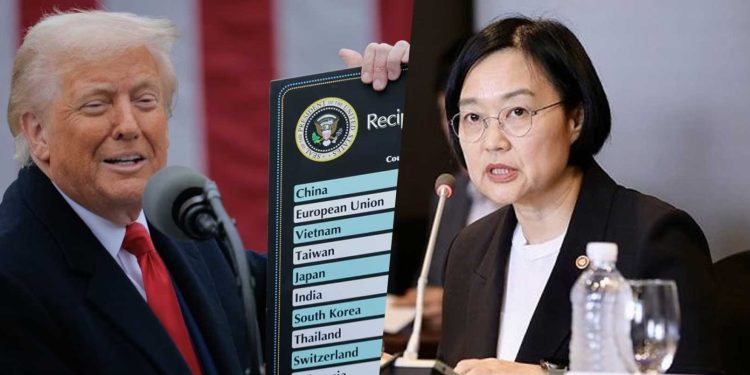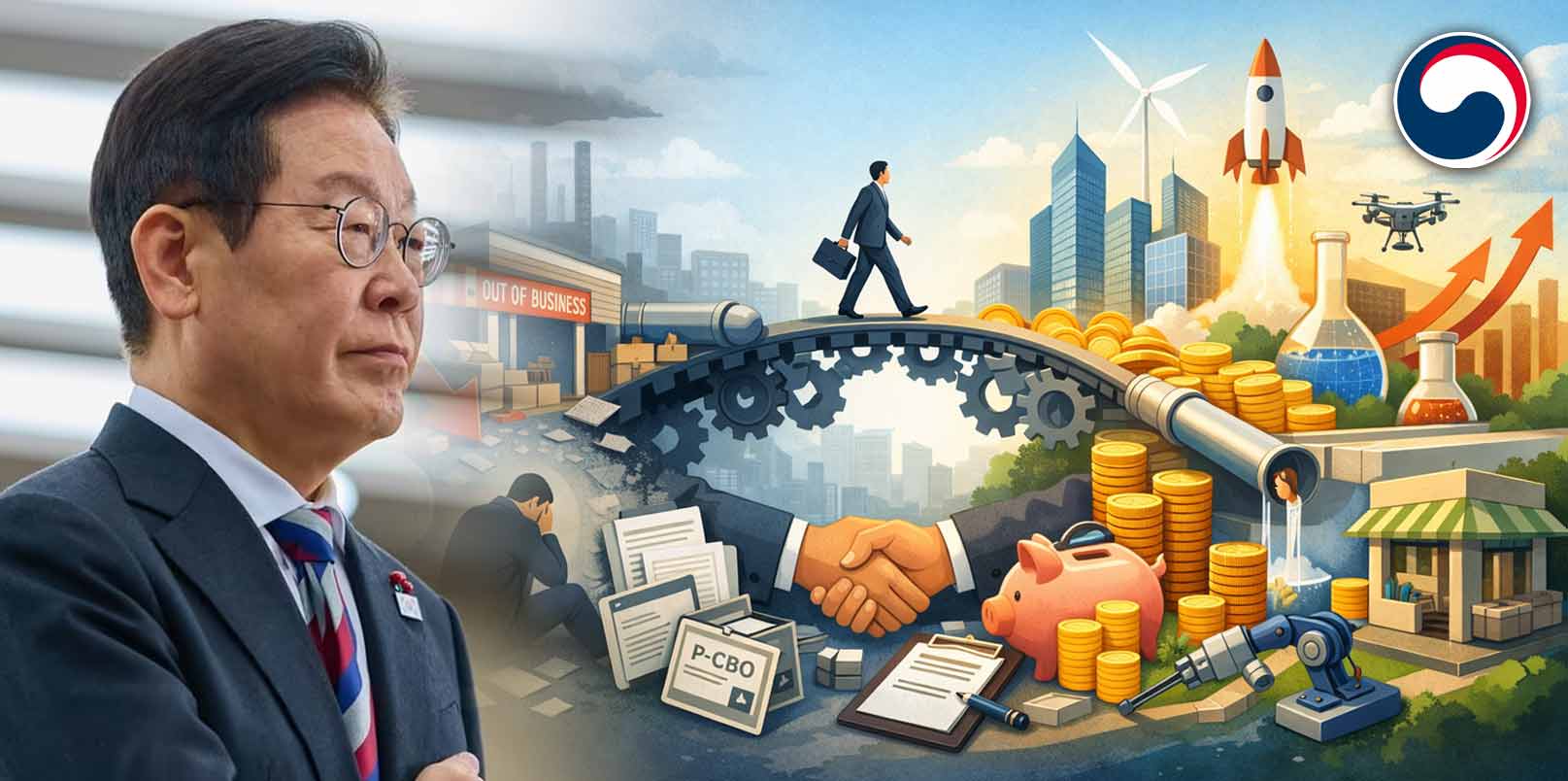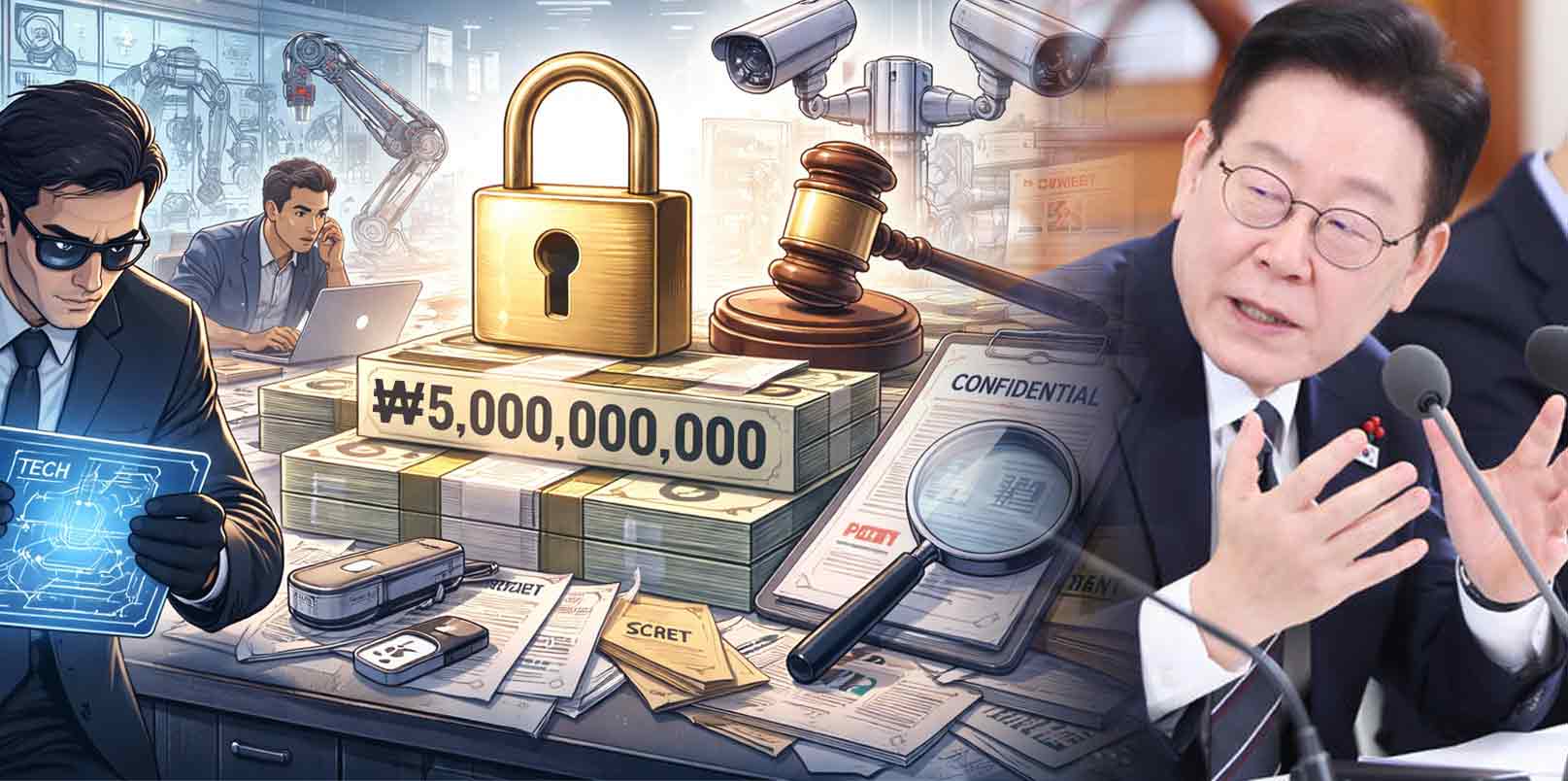Korean SMEs are bracing for higher costs and trade disruption under new reciprocal U.S. tariffs. In response, Seoul has unveiled a USD 3.4 billion relief package aimed at easing short-term shocks while positioning its startups for longer-term global expansion. With logistics vouchers and K-beauty export clusters in motion, these measures highlight Korea’s evolving trade strategy in a shifting global landscape.
Korea’s $3.4B Response to Reciprocal U.S. Tariffs
The Ministry of SMEs and Startups (MSS) has announced a KRW 4.6 trillion (approx. USD 3.4 billion) support package to cushion small and medium-sized enterprises (SMEs) against the impact of newly implemented 15% reciprocal tariffs by the United States.
Revealed at the September 3 Economic Ministers’ Meeting and Industrial Competitiveness Enhancement Ministers’ Meeting in Seoul, the plan introduces a mix of financial relief, logistics subsidies, and export competitiveness programs designed to minimize trade disruption and strengthen Korea’s global positioning.
A recent joint survey by MSS and the Korea Federation of SMEs found that 63.1% of firms expect negative impacts on exports to the U.S., with logistics costs ranked as the most urgent concern (73.2%), followed by financing (38.8%) and customs information (23.5%).
Three Pillars of Support Against U.S. Tariff: Field, Finance, and Logistics
MSS grouped its measures into three categories: field challenges, financing, and logistics.
Customs & Consulting Support
Working with the Korea Customs Service, MSS will expand its tariff information services and deep-dive consulting. Special consulting will target steel, aluminum, and derivative products, sectors directly impacted by U.S. tariffs.
Larger companies running joint tariff-response programs with suppliers will receive incentives including preferential Shared Growth Index ratings.
Financial Measures
At the core of the package is KRW 4.6 trillion (~USD 3.4 billion) in policy financing and guarantees, designed to give SMEs immediate breathing room as tariffs raise costs.
The ceiling for special guarantees supporting export diversification will rise from KRW 300 billion to KRW 500 billion (~USD 370 million), giving firms wider options to pursue new markets.
Loan limits for domestic companies making the leap into exports will also double, from KRW 500 million to KRW 1 billion (~USD 740,000), while financing eligibility standards are being eased to ensure that more SMEs can access support quickly.
Logistics Relief
Recognizing that logistics costs are the single greatest burden, the government is scaling up subsidies across the board.
The export voucher budget will expand to KRW 420 billion (~USD 310 million), with subsidy rates for heavily affected exporters increasing to 50% of costs. The cap on international transport subsidies will temporarily double from KRW 30 million to KRW 60 million (~USD 44,000), easing the pressure of rising freight charges.
Looking ahead, a new “K-Export Logistics Voucher” worth KRW 10.5 billion (~USD 7.8 million) will launch in 2026 to provide permanent support for international shipping, inland transport, and courier expenses.
To further strengthen supply chains in the U.S. market, the government will also establish two dedicated cosmetics logistics centers, enabling faster delivery times and more efficient inventory management for K-Beauty exporters.
K-Beauty and Sector-Specific Export Hubs
The government is also doubling down on K-Beauty as a strategic export category.
A K-Beauty Integrated Cluster will be developed, combining experience, culture, tourism, and industry into one hub to attract overseas buyers and consumers. A cross-ministry K-Beauty Cluster Council will be launched in late 2025 to coordinate policy and industry engagement.
In addition, the government’s export push extends well beyond cosmetics. MSS is preparing to work with major global retail channels to help SMEs in fashion, lifestyle, and food gain footholds in overseas markets, providing both visibility and distribution opportunities.
In the U.S., a Startup & Venture Campus will be established in Silicon Valley, designed as a landing hub where Korean startups can connect directly with venture capital and accelerator networks.
At the same time, region-specific initiatives will anchor key industries across Korea. Bio enterprises in Chungbuk, shipping in Busan, and textiles and eyewear in Daegu will see tailored support programs that match local strengths with global demand.
To keep pace with tightening trade standards, MSS will also expand regulatory compliance programs in areas such as wireless electronics, ensuring that Korean exporters remain competitive as the U.S. and EU strengthen export requirements.
Joint Global Expansion with Large Enterprises
To address shifting supply chains and encourage joint overseas expansion between large and small firms, MSS will provide up to KRW 1.5 billion (~USD 1.1 million) per consortium over three years. This includes support for “P-turns” — relocating production bases from one country to a third to mitigate tariff risks.
For SMEs disrupted by such relocations, policy measures will streamline business transition approvals and simplify loan screening procedures.
Policy Context: Diversifying Beyond the U.S.
The measures reflect MSS’s broader effort to strengthen Korea’s export competitiveness through diversification.
In addition to easing tariff shocks, the government is using this package to push SMEs toward:
- Multiple export markets, reducing reliance on the U.S. and China.
- Sector-specific hubs, with K-Beauty positioned as a global flagship.
- Digital-first trade models, including upcoming online export activation policies to globalize Korean e-commerce platforms.
Minister Han Seong-sook emphasized:
“We will minimize export impacts from reciprocal tariffs by delivering customs and policy information swiftly through all possible channels. By leveraging K-soft power and diversifying export categories, we will support SMEs in securing stronger competitiveness under shifting global trade conditions.”
A Dual Track to Position Korea as Ecosystem Builder
Ultimately, Korea’s approach actually signals a dual track for global investors and trade partners: relief in the short term and structural competitiveness in the long term.
The combination of logistics subsidies, sectoral clusters, and new overseas hubs positions Korea not just as a tariff responder but as an ecosystem builder, connecting SMEs more deeply into international supply chains and capital networks.
– Stay Ahead in Korea’s Startup Scene –
Get real-time insights, funding updates, and policy shifts shaping Korea’s innovation ecosystem.
➡️ Follow KoreaTechDesk on LinkedIn, X (Twitter), Threads, Bluesky, Telegram, Facebook, and WhatsApp Channel.






